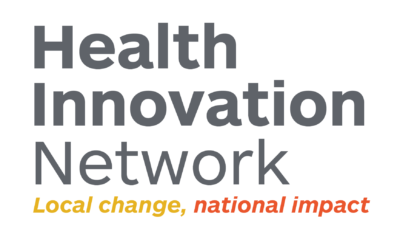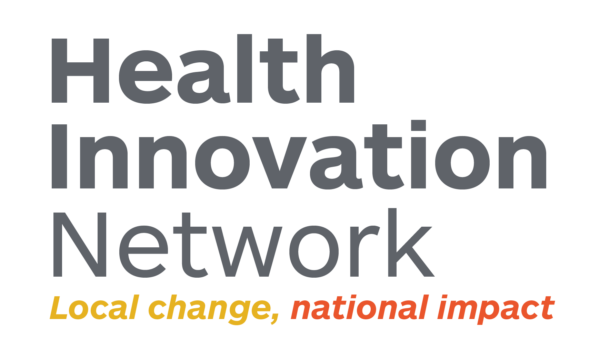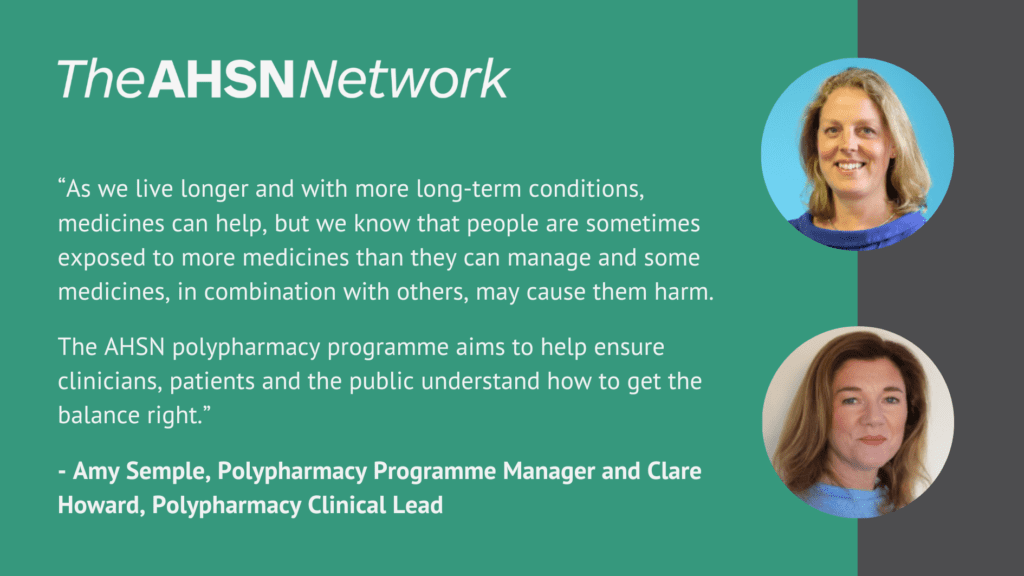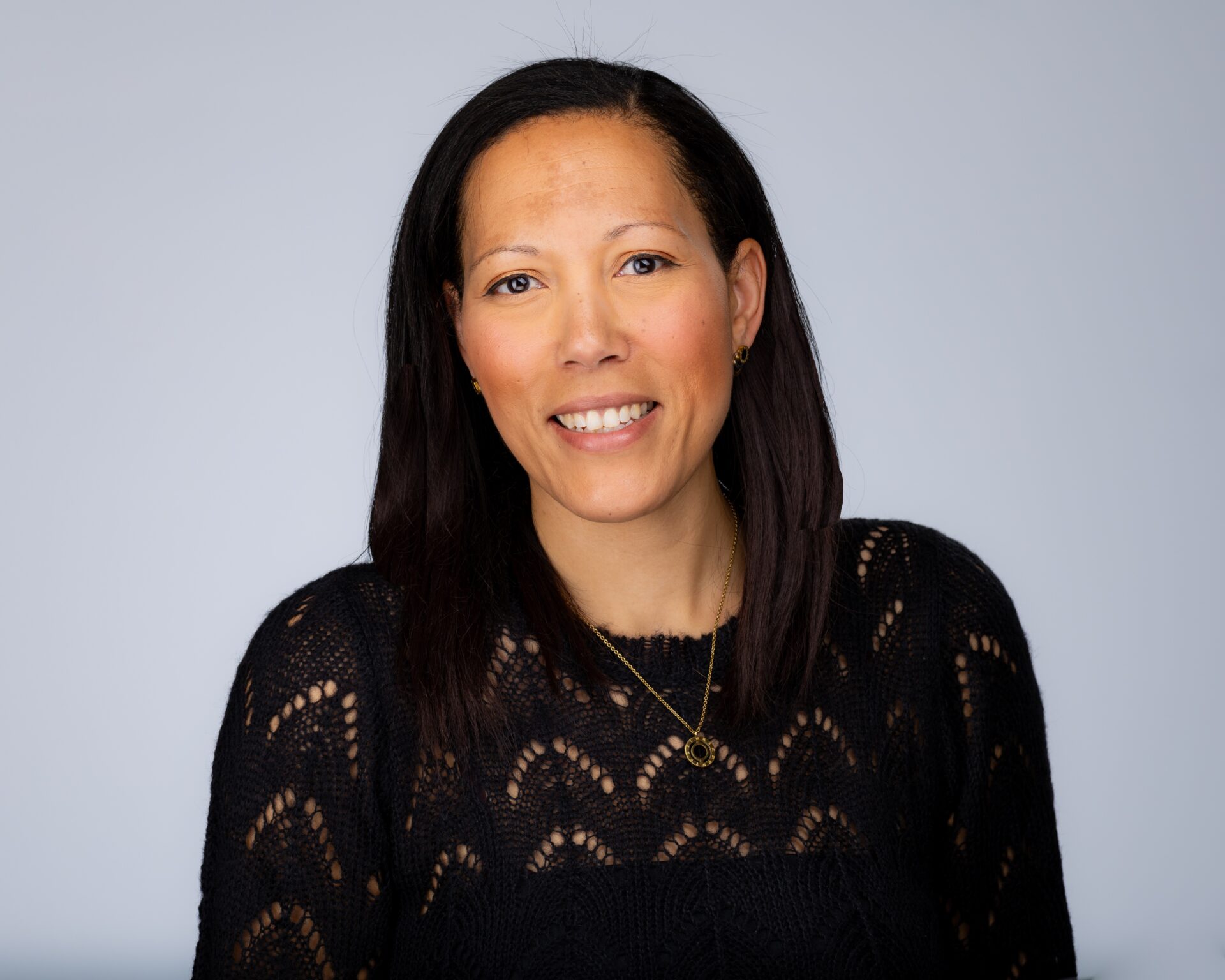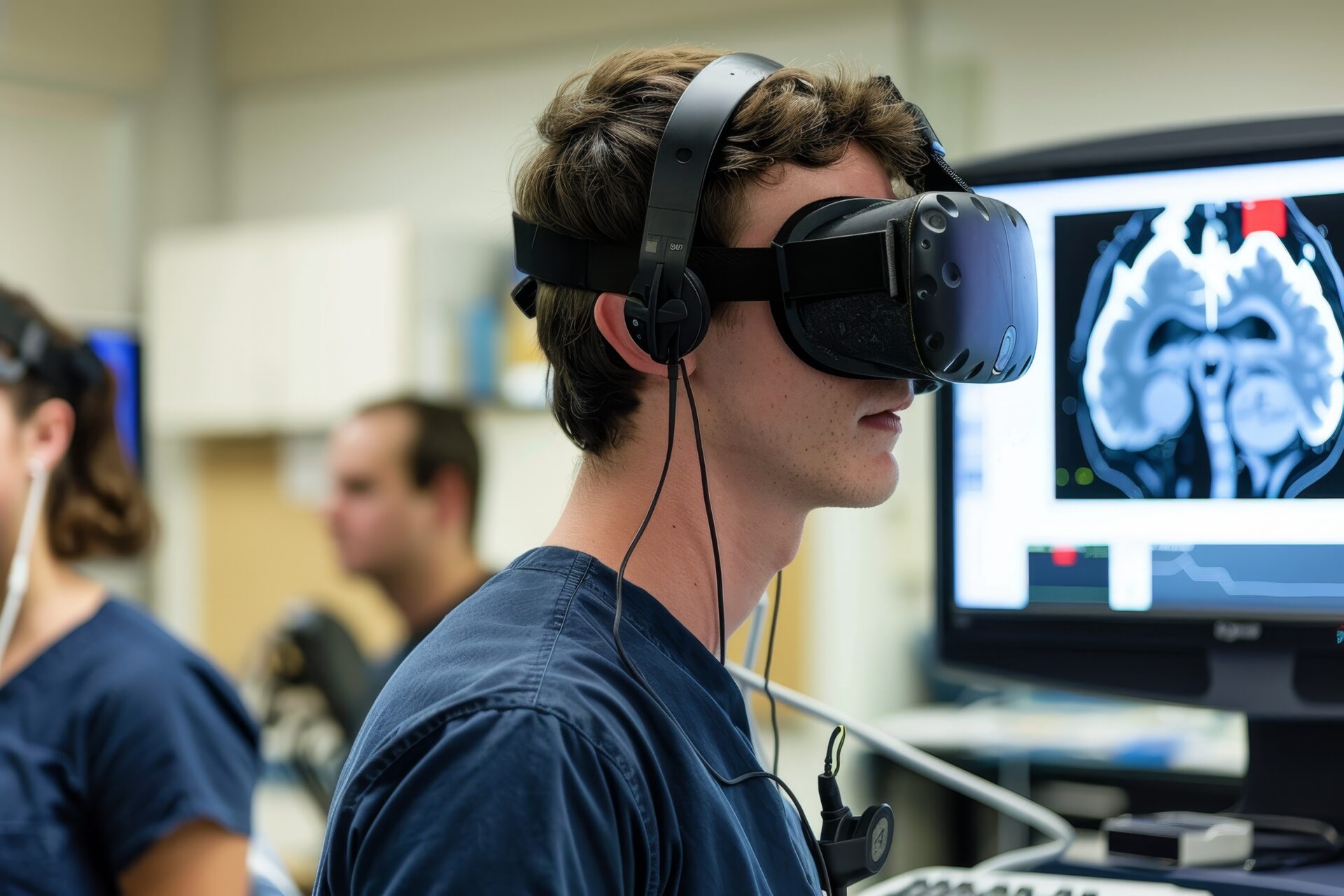The AHSN Network recently launched the new national polypharmacy programme: getting the balance right. Hear Programme Manager, Amy Semple and Clinical Lead, Clare Howard discuss why we need to take action to address problematic polypharmacy and how the AHSN Network is supporting this important area of work.
Why is polypharmacy an important topic?
Polypharmacy is one of the key themes of the World Health Organisation’s Global Patient Safety Challenge, aiming to reduce severe avoidable medication related harm by 50% globally over five years.
In England, we prescribe and dispense over one billion items each year in primary care. In April 2022 alone, there were almost one million people in England taking 10 or more medicines and 370,000 of those people we aged 75 or over. We know a person taking 10 or more medicines is 300% more likely to be admitted to hospital.
Medicines do so much good but as more people live longer with multiple long-term conditions, the number of medicines they take increases, and this can sometimes expose them to harm. They may increase their risk of a fall or being admitted to hospital, or generally reduce their quality of life. Of course, no doctor, pharmacist or nurse wants this for their patients but sometimes the system that we work in can result in people being on too many medicines.
Our polypharmacy programme aims to support the national effort to redress the balance. We want to ensure that patients can access what is appropriate for them but not take so many medicines that they can’t manage them all or take combinations of medicines that we know increase their risk of harm.
Why do people end up on too many medicines?
This isn’t anyone’s fault. We have a medical model of care that doesn’t always take adequate notice of the situation a person is in or what is important to them. The AHSN polypharmacy programme is supporting GP practices to identify patients who might be at increased risk of harm. We’re helping clinicians carry out high-quality medication consultations based on shared-decision-making and we’re also helping the public understand that it’s important that they ask about their medicines and share their questions, concerns and expectations.
Just as the causes of polypharmacy are complex, so too are the solutions. That is why each AHSN is establishing a polypharmacy community of practice to bring people together to share ideas and best practice and work on local solutions.
What has been done already?
The AHSN Network, working with the NHS Business Service Authority, created the first national data set of polypharmacy comparators for England. This shows GPs and pharmacists which of their patients are deemed to be at the greatest risk of harm. This work has been used by many practices since 2017 and we are now running training sessions to ensure that ALL practices access and use the tools as they’ve been designed to be used. We know that where primary care does this, it can have a real impact on polypharmacy and lower some of the risks of harm that patients can be exposed to.
What part do patients and the public play in this work?
Pillar 3 of our work is a more experimental phase where we’ll be considering how we can best support patients to be more open about their medication issues. Each AHSN will be testing available patient information resources and the impact these can have on conversations between clinicians and patients. And nationally we’ll be engaging with the public, patients and carers, as well as organisations like Age UK, to ensure there is a strong patient voice throughout our work.
Where do you hope to see this programme in three years’ time?
I hope that in three years we’ll have deployed a comprehensive training programme to thousands of clinicians, and as a result, they’ll be much more confident in stopping medicines safely that are no longer needed or appropriate. I hope that the general public comes to demand a medication review every year and expects to have a meaningful conversation with their prescriber about what is important to them and how their medicines can help with their goals in life, especially in later life. It is an honour to be leading this programme and I am committed to making taking medicines safer and easier.
How can people get involved?
Each AHSN is setting up a community of practice to bring together clinicians, charities and the voluntary sector and importantly patients and carers to explore and take action on how to address this locally.
We are encouraging GPs and prescribers to join our action learning sets. These will ramp up next year and are a practical way to start having conversations with patients about stopping medicines safely.
And if you are a member of the public managing multiple medicines, we want to hear from you – and your carer – to join our local focus groups and help test the patient resources.
So there are lots of ways to get involved. Contact your local AHSN Polypharmacy Lead or the national programme team for more information.

Richard Stubbs, Chair of the Health Innovation Network, and Chief Executive of Health Innovation Yorkshire and Humber, explores the pivotal role that innovation plays in supporting the Government's ambition to transform the NHS, and why a focus on the implementation of innovation is key. The Government's mandate to NHS England, published on 30 January 2025, [...]

As we celebrate International Day of Women and Girls in Science, Dr MaryAnn Ferreux, Chief Medical Officer at Health Innovation Kent Surrey Sussex, explores how we can advance women's leadership in healthcare. In recent years, the impact of women leaders in health care has gained global recognition. According to the article "Women Leaders in Health [...]

Earlier this month, Sir Keir Starmer outlined his vision for transforming the NHS, stating “we need an NHS hungry for innovation”. As a part of the Health Innovation Network, I welcome the new Government’s focus on transformation, having seen first-hand the huge productivity and patient benefit gains of many innovations associated with the three shifts: [...]

